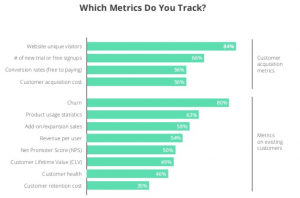As Elon Musk and Mark Zuckerberg continue to train for the fight no one asked for, new pictures of Musk taking podcast host Lex Fridman down on the mat in a sparring match have emerged—and he’s looking rather trim. This might be because of his continued use of Wegovy, an injectable drug used for chronic weight management.
Other drugs in this category—called semaglutide—include Ozempic. The drug is intended for diabetes patients, but often prescribed off-label for weight loss to patients with obesity. These drugs have also been abused by people without obesity who are simply looking to lose weight fast. In the past year, semaglutide medication has gone viral on TikTok, been featured in subway ads, and has been rumored to be responsible for the dramatically thinner appearance of several celebrities. Recall Jimmy Kimmel’s joke at this year’s Oscars: “Looking around this room I can’t help but wonder, ‘Is Ozempic right for me?’” The attention has also led to shortages for diabetes patients in need.
This week, a few new developments in the weight loss medication space emerged, including news of a pill form of Ozempic; a new “supercharged” version of the drug that would lead to even more dramatic transformation; and companies offering the drug as a health benefit for those who qualify. Let’s dive in.
A pill version of Ozempic is coming
At the American Diabetes Association’s annual conference in San Diego, researchers presented a pill form of semaglutide that reduced weight and improved blood sugar levels about as effectively as the shots. Instead of a weekly shot, patients would likely need to ingest it once a day. “Pill medication Rybelsus has been around for a while to treat diabetes, but it wasn’t as efficacious for weight loss. Over the weekend, a new pill that contains a higher, 50mg, dose of Rybelsus was shown to be just as efficacious as Wegovy for weight loss,” says Dr. Rekha Kumar, the chief medical officer of the weight loss company Found.
Eighty percent of patients in the trial experienced side effects of the pill, including nausea, vomiting, and diarrhea—and at a similar rate to the weekly shot. Novo Nordisk (maker of Rybelsus), Eli Lilly, and Pfizer are all working on pill versions of the drug, with Novo Nordisk fighting to maintain its dominant position. Kumar says the drug is still winding its way through the system and has only just finished its 48-day, phase 2 trials. “It’ll still be a year or two because phase 3 trials take a long time.”

But a new drug that could lead to even more drastic weight loss is in development
Another breakthrough revealed at the conference is that shots containing tirzepatide may lead to more drastic weight loss. A drug called retatrutide has even led to results comparable to gastric bypass and other weight-loss surgeries. “On Ozempic, patients typically lose 10% to 15% of their body weight. On Retatrutide patients were losing 25% of their body weight over the course of 11 months, with no signs of a plateau,” Kumar says, though she adds that the drug also needs to go through phase 3 trials, so it may be a few years before it hits the market.
Even if (or when) it does, Ozempic will still be in use. Those looking for obesity treatments will just have more options. Kumar says that this could also leave doctors in an awkward situation, when patients ask for drugs that might lead to more drastic weight loss that they don’t need. “In a world where patients are demanding to be prescribed the medication, how do you frame to a patient that they may not need the most drastic treatment?” Kumar says. “In most areas, patients are not asking for the strongest medicine, but here, they are. No cancer patient asks for the strongest type of chemotherapy, for example.”
Some telemedicine companies that offer Ozempic are now working with employers to get it covered by insurance
Medication-assisted obesity care is going mainstream, and some telemedicine companies like Found are working with employers to offer weight-management benefits to employees that might include prescriptions for drugs like Ozempic. These drugs do not come cheap (a monthly does without insurance costs around $800), and it could cost employers a lot of money. Still, Kumar compares the program to fertility benefits that some companies offer. “It’s a really challenging situation, because these medications are something theoretically 70% of the population could qualify for, and that would bankrupt employers and insurance companies,” Kumar says, adding, “That’s why we offer comprehensive weight management benefits that don’t always involve GLP-1s, so we can manage utilization without denying anyone access to the medication if they need it.”
She also says that employees are increasingly asking their companies to cover the drug. Because people take these medications to manage a chronic condition—and likely will not go off them—the benefit could also encourage employees to stick with companies that offer it for longer.
Dr. Angela Fitch, founder and chief medical officer of Knownwell, which offers “weight inclusive” in-person and virtual primary care and metabolic health services, says that the solution is akin to putting a band-aid on a bullet wound. “Access to these obesity treatments should be offered by Medicaid and Medicare,” she says. “Offering them through employers it’s not a scalable approach, and if you quit working for your employer, those benefits are gone.”
Fitch also points out that weight-related stigma is built into insurance plans. “Many companies have carve-outs to not offer obesity-related care because they think it’s just cosmetic,” she says. “But it’s a chronic condition. You would never have a carve-out to not provide chemotherapy to cancer patients, people would be up in arms.”
Sounds like a problem socialized healthcare could solve . . . but that’s a debate for another day.
(20)









